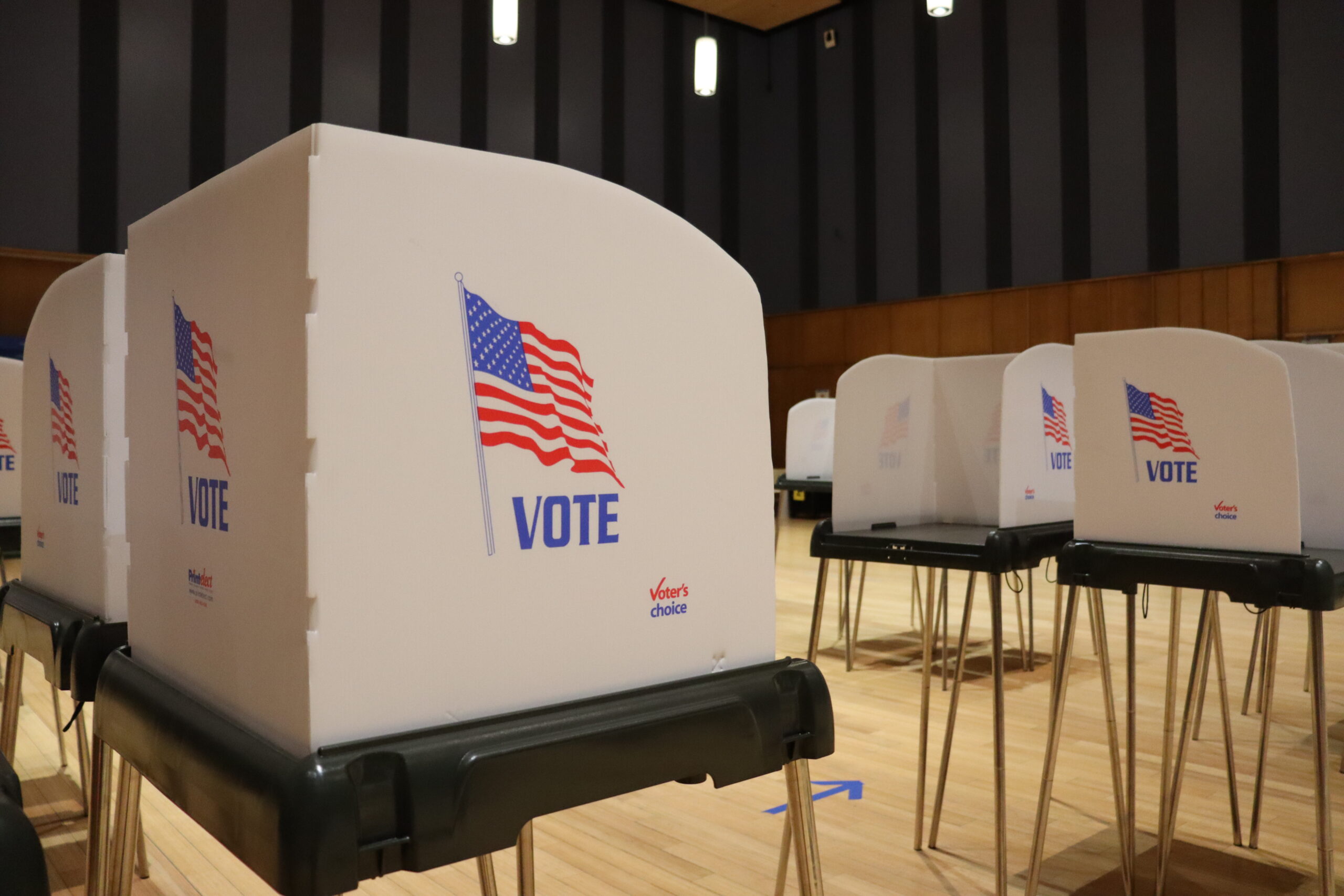The Asian American eligible voter population has been the fastest-growing part of the electorate in the United States for about the last two decades, according to a Pew Research Center analysis.
According to Pew, about 15 million Asian Americans are projected to be eligible to vote in this upcoming election.
A survey conducted by Asian and Pacific Islander American Vote (APIAVote) and AAPI Data found that 77 percent of Asian American voters are “absolutely certain” that they will vote in the 2024 election.
So what issues matter most to Asian American voters? Who are they likely to vote for?
“Access to healthcare is a biggie,” says Elizabeth Chung, executive director of the Asian American Center of Frederick in Fredrick, Md. She says members of the Asian American community want culturally appropriate and affordable healthcare.
It’s an issue that resonates with her on a personal level.

In 1985, Chung’s father, a Chinese doctor, embarked on a 3-hour journey from San Jose, Calif., to San Francisco to get healthcare from someone who speaks Chinese.
Later in life, when Chung’s father needed medical care for a preexisting condition, Chung could not afford the health insurance required to take care of his needs. She bought a one-way ticket for him to return to China for care. Chung said it was especially difficult not to be able to support her father because he had worked hard, saved money, and even sent her and her siblings to college.
“How could this country, you know, have me send my loved one home to die,” Chung said. “That is very unjust to me.”
Chung believes that providing culturally relevant, language-appropriate services cuts across issues, including healthcare, education, housing and transportation.
Other topics that Chung identified as top-of-mind for Asian American voters were hate crimes and racism.
Chung said comments, like those made by Donald Trump recently about immigrants “eating the pets,” can stem from the perception that immigrants are inferior and dehumanize them.
“[That] rhetoric makes us very fearful,” she said, pointing out that America has a history of ignorance and hatred toward those who are foreign-born, an example being the internment of Japanese Americans.
“The politicians must address hate crimes, put resources to educate the communities and also support the community,” Chung said.
The spike in violence against Asian Americans from the COVID-19 pandemic is also fresh in voters’ minds, according to Christine Chen, executive director and co-founder of APIAVote, an organization that encourages voting and civic participation among Asian Americans.

“I think the scars that we’ve endured are still with the community, and so we do not necessarily want a repeat of having those kinds of conditions where that would lead up to … targeting of our community,” said Chen.
There was a 167 percent increase in anti-Asian reported incidents between 2020 to 2021, according to an FBI report. When bias acts targeting Chinese Americans were on the rise, then-President Donald Trump received criticism for continuing to refer to COVID-19 as the “Chinese virus”.
Chen’s organization, APIAVote, joined AAPI Data to conduct a survey of Asian American, Native Hawaiian and Pacific Islander voters on issues that impact their vote and who they are voting for in this presidential election. The results were broken down by race and ethnicity.
The survey found that 73 percent of Asian Americans would not vote for a candidate who doesn’t share their view on racism or discrimination.
Vice President Kamala Harris’ ethnic background was highlighted in this election. Her father is Jamaican and her mother is South Asian, which makes her the first Black and South Asian woman to run for president.
The APIAVote survey found that Harris’ identity as a woman is more important to Asian American voters at 38 percent than her South Asian identity, which 28 percent of respondents said was important to them.
“It was really interesting to see that finding, but now knowing how there is such a gender gap — not only within the Asian American voters but also among other voters of whatever ethnicity — I’m not that surprised any longer,” Chen said. She added that “ethnicity still played a part in terms of our community getting more energized and having interest in paying attention to the elections.”
The APIAVote survey, which was conducted in September, found that 66 percent of Asian Americans plan to vote for Kamala Harris, while 28 percent plan to vote for Donald Trump.
One of Chen’s main arguments is that candidates need to make a real effort to reach out to Asian American voters. Through her work with APIAVote, she hopes to encourage more Asian Americans to vote, knowing that campaigns tend to pay more attention to high-propensity voters, those who turn out to vote.


You must be logged in to post a comment.